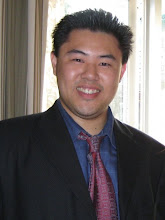Sunday, April 29, 2012
Say No To Standardization!
Response to Michael Winerip of the NY Times - Article dealing with education and roboreaders.
I just heard you on the NPR tech podcast and I have to agree that I am not a supporter of more and more standardized testing as well as "standardized reading" of writing exams.
I love reading and writing, I'm always reading in my free time and when I have something to speak on, such as this topic, I end up writing as well.
To keep it short though, I would say I am a perfect example of a victim of standardized tests. Everyone knows that doctors must be smart and yes, they should be tested so they know their stuff, but I would say the 7/8+ hour tests over multiple days that give out page long cases to read and then to choose one answer that's correct over 6 to 10 other ones at times is just ridiculous.
It's sad, I don't think that way. I've always been told I think outside the box and in some cases, real cases, that's what you need! But, after many years, I haven't been able to train myself to think in the way the medical boards have wanted me to in order to pass these tests. It took 3 years to pass the Step 1, and I've still not been able to pass Step 2. It may be too late for me in truth, although, if anyone, doctor, or layman, asks me to come up with a list of possible diagnoses and treatments, I can rattle off a great list quickly from my mind (In essence, i can do the job).
I just think that the process of standardized testing is creating a standardized population. We're all being trained to do things the same way and there is no leeway or accounting for someone who may be just as smart or smarter than the next guy, yet can't pass some standardized test. I think there should me another method or another way given to everyone, no matter the cost. I taught kids for a while and we were taught that everyone learns differently. It's the same for adults. Testing has to take that into account as well!
I'm still trying, I may never pass, but I have picked up radiography as a skill since then and hope to at least be able to bankroll my future attempts. They are not only tough, but expensive tests.
To close, I guess I wished that people took the time to find more realistic ways to test people and kids rather than just standardized "cardboard cutout" ways. Not everyone fits a mold but everyone can be a valuable part of society and their value to themselves and to their society might be greatly diminished because of a standardized, one size fits all, test.
Thanks for reading,
Ken Guie (MD - yet still unable to practice)
Subscribe to:
Comments (Atom)

